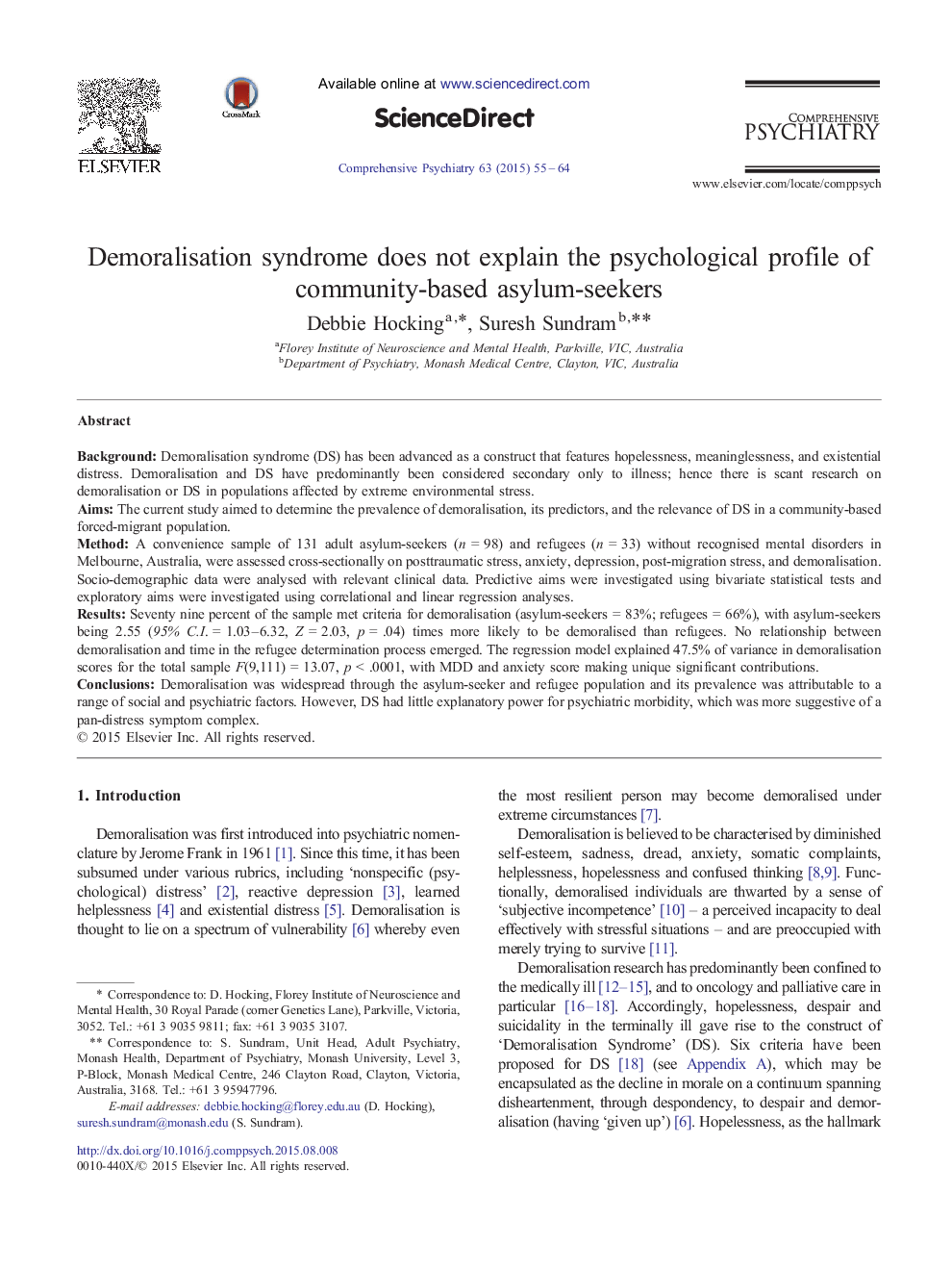| کد مقاله | کد نشریه | سال انتشار | مقاله انگلیسی | نسخه تمام متن |
|---|---|---|---|---|
| 318095 | 538284 | 2015 | 10 صفحه PDF | دانلود رایگان |
BackgroundDemoralisation syndrome (DS) has been advanced as a construct that features hopelessness, meaninglessness, and existential distress. Demoralisation and DS have predominantly been considered secondary only to illness; hence there is scant research on demoralisation or DS in populations affected by extreme environmental stress.AimsThe current study aimed to determine the prevalence of demoralisation, its predictors, and the relevance of DS in a community-based forced-migrant population.MethodA convenience sample of 131 adult asylum-seekers (n = 98) and refugees (n = 33) without recognised mental disorders in Melbourne, Australia, were assessed cross-sectionally on posttraumatic stress, anxiety, depression, post-migration stress, and demoralisation. Socio-demographic data were analysed with relevant clinical data. Predictive aims were investigated using bivariate statistical tests and exploratory aims were investigated using correlational and linear regression analyses.ResultsSeventy nine percent of the sample met criteria for demoralisation (asylum-seekers = 83%; refugees = 66%), with asylum-seekers being 2.55 (95% C.I. = 1.03–6.32, Z = 2.03, p = .04) times more likely to be demoralised than refugees. No relationship between demoralisation and time in the refugee determination process emerged. The regression model explained 47.5% of variance in demoralisation scores for the total sample F(9,111) = 13.07, p < .0001, with MDD and anxiety score making unique significant contributions.ConclusionsDemoralisation was widespread through the asylum-seeker and refugee population and its prevalence was attributable to a range of social and psychiatric factors. However, DS had little explanatory power for psychiatric morbidity, which was more suggestive of a pan-distress symptom complex.
Journal: Comprehensive Psychiatry - Volume 63, November 2015, Pages 55–64
